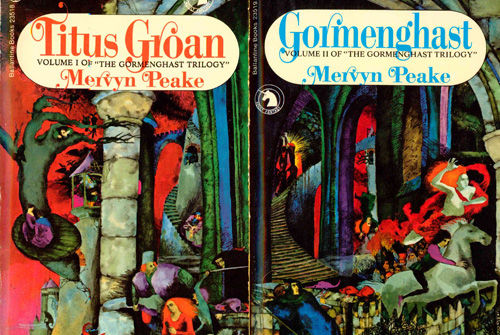
To date, some of the most successful television series – The Walking Dead, Arrow, Game of Thrones – are based on novels or comics. As I’ve already encouraged some end-of-the-year reading in a previous article, it seems like a good time to take some of the ideas that literature inspires and translate it to the small screen. As some of us take that holiday break and delve fully into pop culture, here’s something to make you think: the top 10 books that ought to be on TV.
10. Northlanders
by Brian Wood, 2008-2012
We all know how popular old world pagan culture is right now, especially if you’ve been keeping up with Vikings on the History Channel. And now with The Last Kingdom having debuted on BBC and a Beowulf adaptation in the works, it seems that the time is ripe to bring many exciting Norse epics to TV. Northlanders was a DC Comics series composed of multiple arcs, each of which focused on different characters during different historical periods, from the days of the Byzantine Varangian Guard to the battle with the Norse-Irish alliance in 1014. Due to its time-jumping nature, Northlanders has the potential to be an excellent Viking anthology series, with a continuous influx of new characters and storylines to keep it fresh.
9. Global Frequency
by Warren Ellis, 2002-2004
Speaking of anthologies, Global Frequency could apply the same template to the science fiction genre. Another DC Comics series, this one featured a covert intelligence organization that employed over 1,000 experts in various fields (scientists, detectives, athletes, etc.), any of which could be immediately “activated” with mobile technology and called upon to rescue the world from dangerous threats, including everything from rogue military operations and political turmoil to terrorist attacks and religious cults. Bringing this one to TV is a no-brainer, and with a rotating cast and an X-Files-style monster-of-the-week format, it would appeal to a similar audience.
8. The Gate of Time
by Philip José Farmer, 1966
An alternate history novel focusing on indigenous peoples, The Gate of Time features Roger Two Hawks, an Iroquois serving as a combat pilot during World War II. When his plane is shot down in Romania, he parachutes to safety, only to find that he has descended into an alternate timeline in which the American continents never rose from the sea, and the American Indians remained in Asia and Europe, on a planet caught up in a war of its own, with Two Hawks caught in the middle. It would be refreshing to not only watch such an interesting story unfold, but to actually have a prominent Native American lead character on a series.
7. Gormenghast
by Mervyn Peake, 1946-1959
A series of five books (one published posthumously), Gormenghast is, to put it frankly, what the Addams Family might be like if it were a dark, brooding drama. A show has already been attempted once, but at only four episodes long, it seems like this could be remade as an ongoing series. A little bit Dark Shadows, a little bit similar to family spat reality shows like The Royals, the books were Gothic literature focusing on Gormenghast castle and the noble Groan family that lives within its walls. Filled with betrayal, mystery, murder, and melodrama, the novels depicted the family’s life as they live reclusively, situated in rugged mountains, far removed from the rest of the world, where medieval ideas and ritualistic behavior persist. If this could somehow be taken into the modern era, highlighting the dichotomy of ancient values in a modern world, things could get pretty interesting.
6. Magic, Inc.
by Robert A. Heinlein, 1940
A long forgotten and virtually unknown novella, this was, fittingly enough, originally published in a magazine titled Unknown Fantasy. In the story, magic has been corporatized; it is a commonplace profession used by successful businessmen. An example of the fantasy genre making interesting social commentary, it focuses on a small business owner who fights an attempt to force his magic under the control of a ruthless company called Magic, Inc. This world of magical businesses alone would provide an excellent backdrop for an ongoing serial, and its heightened relevance now, in an increasingly corporatized, anti-small business America, is too great to ignore.
5. John Silence
by Algernon Blackwood, 1908
Essentially a dark, supernatural Sherlock Holmes, the stories of John Silence were published from 1908 onward, featuring an occult detective who investigates paranormal occurrences. Sure, we already have John Constantine over in the world of comics, but the John Silence novels were very pulpy, very noir; it’s a tone that could really give such a series a visceral edge as a TV drama. I could definitely see this on AMC or FX, and the occult material a show like this could pull from is virtually endless.
4. The Space Merchants
by Frederik Pohl and Cyril M. Kornbluth, 1952
Recently, older sci-fi novels have been getting picked up by television networks. Childhood’s End, based on the story by Arthur C. Clarke, and The Expanse, based on the series by Daniel Abraham and Ty Franck, are both coming to the SyFy Channel, and I see no reason why this underrated and excellent work by Pohl and Kornbluth couldn’t be next. A fascinating critique of commodification and consumerism, The Space Merchants is set in the future, where transnational corporations have taken the place of government entirely, and hold all political power; they delude the populace through advertising and viral marketing that life has become better through constant consumption and fossil fuels. The planet Venus has been settled by humankind, and, wouldn’t you know it, the rich are set to travel there and set up intergalactic corporations. Hey, at least it’s – unfortunately enough – realistic.
3. Black Science
by Rick Remender, 2013
This is a pretty exciting comic series focusing on a group of scientists, called “dimensionauts,” who have invented technology that allows them to travel between universes. They have abused this power, leaping across the multiverse at will, taking anything they want for the sole benefit of their own planet. When a member of the team sabotages the “pillar” device used for traveling, it begins to force them to jump to random places at random times, coming into contact with strange and bizarre realities as they struggle to find their way back home. Admittedly, this is very similar in concept to Sliders, a sci-fi series that debuted during the 90’s. But Black Science puts its own spin on things, and seems to be developing its own mythology.
2. Odds Against Tomorrow
by Nathaniel Rich, 2014
In the not-too-distant future, the world is ravaged by climate change – and capitalism has exploited even that. A gifted mathematician is hired by a shady consulting firm in New York. Asked to calculate worst case environmental scenarios, his schemes are sold to corporations, who invent the technologies necessary to protect themselves and the rich from such disasters. When an actual worst case scenario affects Manhattan, the mathematician realizes he is uniquely prepared to profit from it, but questions doing so, when his loved ones and New York itself could pay the price. There’s some interesting and very timely commentary here, and though this was merely one novel, it seems like this anti-corporate, pro-climate narrative could easily be expanded into a multi-season series.
1. Ghost in the Shell
by Masamune Shirow, 1989
This classic science fiction cyberpunk manga series is already set to become a film, but it would do so much better on the smaller screen. If you don’t already know, Ghost in the Shell is set in the mid-21st century and revolves around the counter-cyberterrorist organization known as Public Security Section 9, led by protagonist Major Motoko Kusanagi, who is an augmented cybernetik human. Society has “advanced” to the point where people’s biological brains have been interfaced with computer networks. It’s a world in which minds can be uploaded to computer systems, memories can be removed and placed in storage, and in which human beings can literally be hacked and controlled by remote sources. A U.S. adaptation of this has real potential, but it ought to be the sci-fi-police procedural/Matrix-esque drama that the source material naturally lends itself to, not a flashy big screen affair with big-name white actors in Asian roles. Ghost in the Shell is held in high regard by manga and cyberpunk fans; its translation to TV is merely a matter of the right networks paying attention.
Photo: Two of the “Gormenghast” novels. | Peake Studies

MOST POPULAR TODAY

High Court essentially bans demonstrations, freedom of assembly in Deep South

UN warns that Israel is still blocking humanitarian aid to Gaza


Resource wars rage in eastern Congo, but U.S. capitalism only sees investment opportunity

U.S. imperialism’s ‘ironclad’ support for Israel increases fascist danger at home






Comments